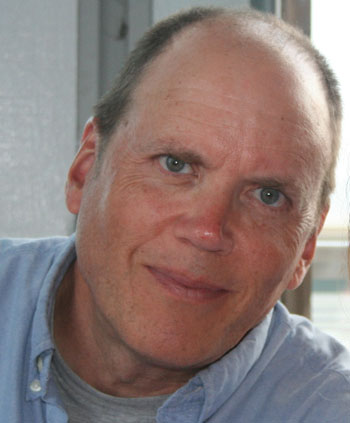
Kevin Griffin, author of One Breath at a Time and A Burning Desire.

Higher Power: Buddhists, “God”, & the 12 Steps
In his book As Bill Sees It, Bill Wilson, the co-founder of Alcoholics Anonymous, writes:
While A.A. has restored thousands of poor Christians to their churches, and has made believers out of atheists and agnostics, it has also made good A.A.’s out of those belonging to the Buddhist, Islamic and Jewish faiths. For example, we question very much whether our Buddhist members in Japan would ever have joined this society had A.A. officially stamped itself a strictly Christian movement.
You can easily convince yourself of this by imagining that A.A. started among the Buddhists and that they told you couldn’t join them unless you became a Buddhist, too. If you were a Christian alcoholic under these circumstances, you might well turn your face to the wall and die. (As Bill Sees It, p. 34.)
As Kevin Griffin explains in his two books, One Breath at a Time and A Burning Desire, there is no cause to “turn your face to the wall and die.”
When I first entered A.A. in 1975 I was a decided Christian. Years later, I fell victim to the obsession to drink like a normal person, failed to do so and reentered A.A. as a Buddhist in 2001. In returning to A.A. I had some questions about how my need for A.A. would fit into my Buddhist practice. Perhaps the most significant difference between Buddhism and Christianity is the absence of a God in the former and the presence of a God in the latter. In the A.A. 12 Steps the word “God” appears four times and is referred to four other times.
Speaking in conjunction with the Prison Dharma Conference held in Portland June 4-6 (see article this issue, Prison Dharma Conference 2010), Griffin addressed this major distinction between Buddhist and Christian language with comments and also readings from his new book, A Burning Desire. He suggested that in place of “God” Buddhists might insert “Dharma.” During the discussion that followed, one member of the audience stated that if Dharma were the only alternative to “God” perhaps it was better that A.A. started in the West, as western Christians might be reluctant to join a society that was so Buddhist-based.
Griffin noted that Bill Wilson once showed the 12 Steps to a Thai Buddhist monk, who thought the steps were quite positive but suggested that in place of “God” Buddhists might use the word “good”. Indeed, the A.A. approach has long included the qualifier of “God as we understand him,” greatly expanding the notion of a higher power. A.A. literature mentions alternatives to the Christian and Jewish notions of God, such as the A.A. group itself. Individual groups vary a great deal in their composition, so much so that there are A.A. groups for atheists and agnostics.
Griffin went on to describe other differences in culture between East and West. While it is common in the West for an alcoholic to stand before a group and say, “My name is Eddie and I am an alcoholic,” such an admission in the East would be contrary to the norm. No doubt the distinction that got the biggest laugh was Griffin’s assertion that while 12 Step programs in the West are frequently referred to as “self help” in the East they might be described as “no-self help”!
Griffin’s major contribution is not his distinctions between East and West, Buddhism and Christianity, but the many points of convergence between Dharma and the 12 Steps. In his book One Breath at a Time, he masterfully works through the 12 Steps and ties their contents to the Dharma. As a result he illuminates and strengthens both, resulting in a potent antidote to our disease.
For me it was fascinating that Griffin, like me, at first thought the power of his Dharma practice alone would be sufficient to mitigate his alcoholism. But it wasn’t for him and it wasn’t for me. However, when brought together they not only keep the alcoholic demons at bay, they also produce a life of serenity and happiness. The book Alcoholics Anonymous mentions that a spiritual way of life is not a theory, it is something we must practice.
To illustrate Griffin’s mastery of the 12 Steps and Dharma, I will quote from his One Breath at a Time regarding Step 6: “[We] Were entirely ready to have God remove all these defects of character.”
Step Six brings us to the central issue of sobriety and all spiritual growth: letting go. This is how the Buddha said we would find happiness; he talked of many forms of attachment and the necessity of letting go of each of them: attachment to material things and sense pleasure; attachment to views and opinions; attachments to relationships; attachment to your body, your thoughts, your sense of identity. (p. 137)
Those of us who suffer from addiction and who are Buddhists will benefit from reading Kevin Griffin’s works. Also, those non-Buddhists who are addicts or alcoholics and are searching for a spiritual path will find an excellent guide in Kevin’s writings. He has provided a great benefit to those of us still suffering.
Contributor: “Eddie Peavey”.
Photo: Courtesy of Hay House.